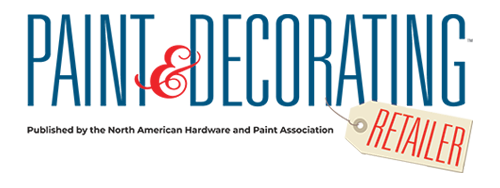By Brian Young
Founder, Laoch Consulting
Three years ago, I experienced a moment that left an indelible mark on me. I was sitting with my friend of over 20 years. He had poured his life into his hardware store for over 40 years, building it from the ground up.
I asked him again, not really believing what I heard.
He told me what his final number was. It was the reason for that pit in my stomach…pennies on the dollar. Not quarters, not dimes—pennies.
The thought that he’d have to return to work instead of enjoying his retirement was heartbreaking. This experience was a stark reminder to me of how fragile the outcome can be when decades of blood, sweat and tears are reduced to a moment that hasn’t been planned for.
Succession planning is something none of us think about until it’s often too late. But, what if it can benefit us today and when we go to sell five, 10 or even 20 years down the road.
What if we can think of it as SUCCESS(ion) Planning.
What Is It?
Succession planning is simply the process of preparing for the transfer of leadership and ownership, most of the time to a family-member, current employee or group of employees.
When Should It Happen?
Unfortunately, like Craig Wadeson shared, most succession planning is usually started only after a “trigger event.” That is, some event that changes the ownership/leadership landscape and requires drastic steps. I call it the dreaded, “NOW!” Phase (death, illness, injury, burn-out, divorce, etc.) This situation obviously leads to higher expenses and lower valuations due to its truncated timeline and desperate nature.
Succession planning involves three aspects: Identification and negotiation with the seller, legal preparation and the valuation of the business. It’s the final aspect that I’d like to focus on, the valuation of the business, since the purchase price is tied directly to the valuation of the business and this is something that we can have a direct impact on now. I call it the “Success(ion) Plan.”
Success(ion) Planning for Today
There are three immediate benefits that creating a “Success(ion) Plan” can have on your business. The first benefit is a more seamless transfer of roles and responsibilities. Since your roles, best practices and optimized processes are already established, the transfer is much simpler and clearer. Each team member knows exactly what seat they have to sit in.
Second, a succession plan leads to an increase in your business’ current valuation. Buyers are willing to pay a higher multiple for businesses that have a Success(ion) Plan. One group of investors who I talked with look for profitable family-owned businesses to purchase at a market premium. They said they willingly pay a higher premium for businesses with optimized systems and operations already in place. They identify these simply by determining how much of the business can function without the owner’s presence necessary.
Basically, you can increase your business’ valuation (even if you don’t intend to sell now) by creating and implementing a rock-solid systems and operations process. Your goal is to create a business that doesn’t need you, which for those of us who feel the need to be there 24/7, this can sting a little.
The third benefit is freedom. Implementing a “Success(ion) Plan” allows you more freedom to expand, invest and further optimize your business.
So, how can we create our own “Success(ion) Plan”? Here’s a few questions to ask to help you get started:
The End
Start with these 5 questions to get a clear goal in your mind first.
- Who? Who are the potential prospects you’d like to sell to?
- How much do you want to sell your business for?
- When would you like to sell your business?
- What deadline are you going to set for yourself to implement your SUCCESS(ion) Plan?
- What do you think your buyer would want in the business to make it a “perfect purchase”? List out those aspects.
The Evaluation
- Weak: Where are the weak spots in my business that I can strengthen? List them out and itemize them based on either: Biggest Impact on Organization or Easiest to Solve.
- Elimination: What systems can I put into place that will eliminate or strengthen the weak aspects of my business?
- Strong: What are the strongest aspects of my business?
- Sustainable: How can I make the strong aspects listed above sustainable and automatic?
- How can I eliminate or minimize the weak spots?
- Do I have a process for each of the essential areas of my business?
The Effort
- Plan it out. If you were to leave tomorrow what document(s) would you give to your next in line?
- Practice it. This won’t be perfect the first time, so don’t expect it to be! Practice it and see where the holes are, then patch them up and practice it again.
- Perfect it. Don’t give up. This is where you want to refer back to your end goals in #1. Stick with this as it gets better and better!
Don’t wait for a crisis to think about the future of your business. You can plan for the future and make your store better today by embracing SUCCESS(ion) Planning. Start writing and implementing your own SUCCESS(ion) Plan today to build a more valuable company, gain more freedom and ensure that your years of hard work pay off handsomely when the time is right
To get your expanded Success(ion) Plan pdf, click here.
 About Brian
About Brian
Brian Young is a former third-generation retailer with over 25 years of experience. He sold his stake in his family’s hardware business to his brother, and now leads Laoch Consulting. During his tenure in the hardware operation, he focused on employee retention and engagement, increasing product mix and margin and driving store traffic through event-based and alternative marketing methods. As a consultant, Brian loves helping business owners navigate and elevate through the aspects of business that proved most challenging for him: people, profit and planning. He has a degree in finance and received the Young Retailer of the Year award from the North American Hardware and Paint Association in 2009 for his achievements in his family’s business.







